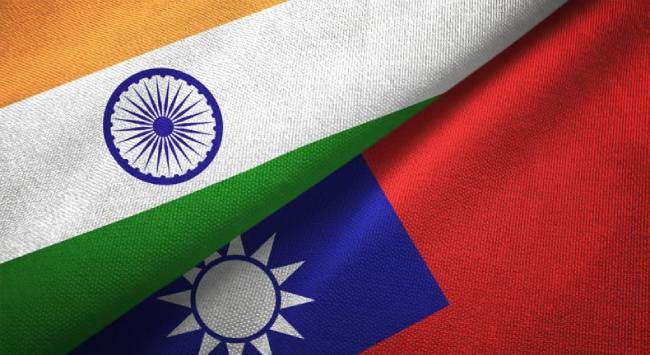Summary
As India prepares to host the Quadrilateral Security Dialogue (Quad) summit next year, one key question around its continuing enmeshment in the Indo-Pacific’s most crucial geopolitical grouping remains around its views on an impending crisis in Taiwan. The issue of India’s stance on a future confrontation involving China on the one hand, and the United States and its strategic allies such as Japan and Australia on the other, has not been publicly debated within the Quad. Yet, this unasked and unanswered question is pivotal for the Quad and India’s relevance within the group. Not without reason, India’s strategic community has finally woken up to the policy dilemma presented by Taiwan and the Quad’s expectations of India.
In a comprehensive research paper for Carnegie India, Indian former foreign secretary Vijay Gokhale categorically argued that the “Taiwan Strait must become an integral part of Indian foreign and national security policy”. In a first of its kind, India’s Chief of Defence Staff (CDS), Lieutenant General Anil Chauhan, has constituted a committee to study the Taiwan crisis’ implications on India and offer policy recommendations to the government. Most recently, the three retired service chiefs of the Indian armed forces visited Taiwan, marking a milestone in India’s strategic engagement with Taiwan.
Though the United States (US) and its other allies within the Quad have not ever openly asked India to take a position on Taiwan, the strategic commentators in the US have argued that the US’ benevolence towards India is not without expectations. Though Ashley Tellis, Senior Fellow at Carnegie Endowment for International Peace, argues that “New Delhi will never involve itself in any US confrontation with Beijing that does not directly threaten its own security”, the underlying expectation in the US cannot be simply ignored.
The Quad’s continuous consolidation and Beijing’s untrammelled aggressiveness undoubtedly will engender a situation where Taiwan might become the test for India’s emerging strategic partnership with the Quad countries. However, Indian policymakers also need to appreciate why and how Taiwan impinges on India’s foreign and security imperatives, irrespective of the expectations of its Quad partners.
Taiwan is not only the most “probable flashpoint” between the US and China in the Indo-Pacific, but it is also perhaps the region’s most consequential political and military pivot.
A confrontation over Taiwan will have severe military consequences for India. Requirements for the Taiwan contingency are a significant distraction for the People’s Liberation Army (PLA), which would otherwise be free to dedicate most of its resources to the Himalayan front. If China overwhelms the island, the already asymmetric military balance of power on the border will shift towards Beijing. A successful military campaign in Taiwan will bolster the PLA’s military confidence. More importantly, Taiwan and other states in the First Island chain will allow the US and other friendly powers to envelop PLA Navy (PLAN) in a small portion of the East and South China Sea. If Taiwan falls under China’s control, the PLAN would be free of its military constraints. Its aircraft carriers and more importantly, its nuclear submarines – ballistic missile submarines (SSBNs) and nuclear-powered attack submarines (SSNs) – will break free from the cordon sanitaire of the US naval forces. Having established its dominance in the South China Sea, the PLAN will have far more resources to dedicate to the Indian Ocean.
Politically, too, the implications are serious. China’s hold over Taiwan will extinguish the US’ hegemony in the region. Most probably, the US will retract to the safety provided by the Atlantic and the Pacific Oceans. The US behaviour notwithstanding, no state in the region, including its allies, will take its alliance commitments seriously. Rather than resisting China, Southeast Asia will prefer to bandwagon with the dragon rather than confront it with the help of extra-regional powers. Middle powers such as Japan and Australia will face an acute political crisis – either accommodate China or develop sufficient military deterrents, including nuclear weapons. Most importantly for India, a victorious Beijing, will have no reason to accommodate India. The pressure on India’s borders will ratchet up because of the newfound confidence in China’s military and leadership.
Therefore, irrespective of the Quad’s expectations, the Taiwan question is inherently important for Indian foreign and national security policy. More importantly, it is fundamental to Asia’s future balance of power. Taiwan is not another Ukraine; even when geographically distant, it is politically and militarily far more consequential for New Delhi. India must face the political and military consequences of a hot war over Taiwan. The study on Taiwan contingency and Indian options initiated by CDS Lieutenant General Chauhan is a welcome step. New Delhi should concurrently engage with an institutional dialogue over Taiwan within the Quad.
. . . . .
Dr Yogesh Joshi is a Research Fellow at the Institute of South Asian Studies (ISAS), an autonomous research institute in the National University of Singapore (NUS). He can be contacted at yogeshjoshi@nus.edu.sg. The author bears full responsibility for the facts cited and opinions expressed in this paper.
Pic Credit: MattooShashank’s Twitter Account
-
 More From :
More From :
-
 Tags :
Tags :
-
 Download PDF
Download PDF



